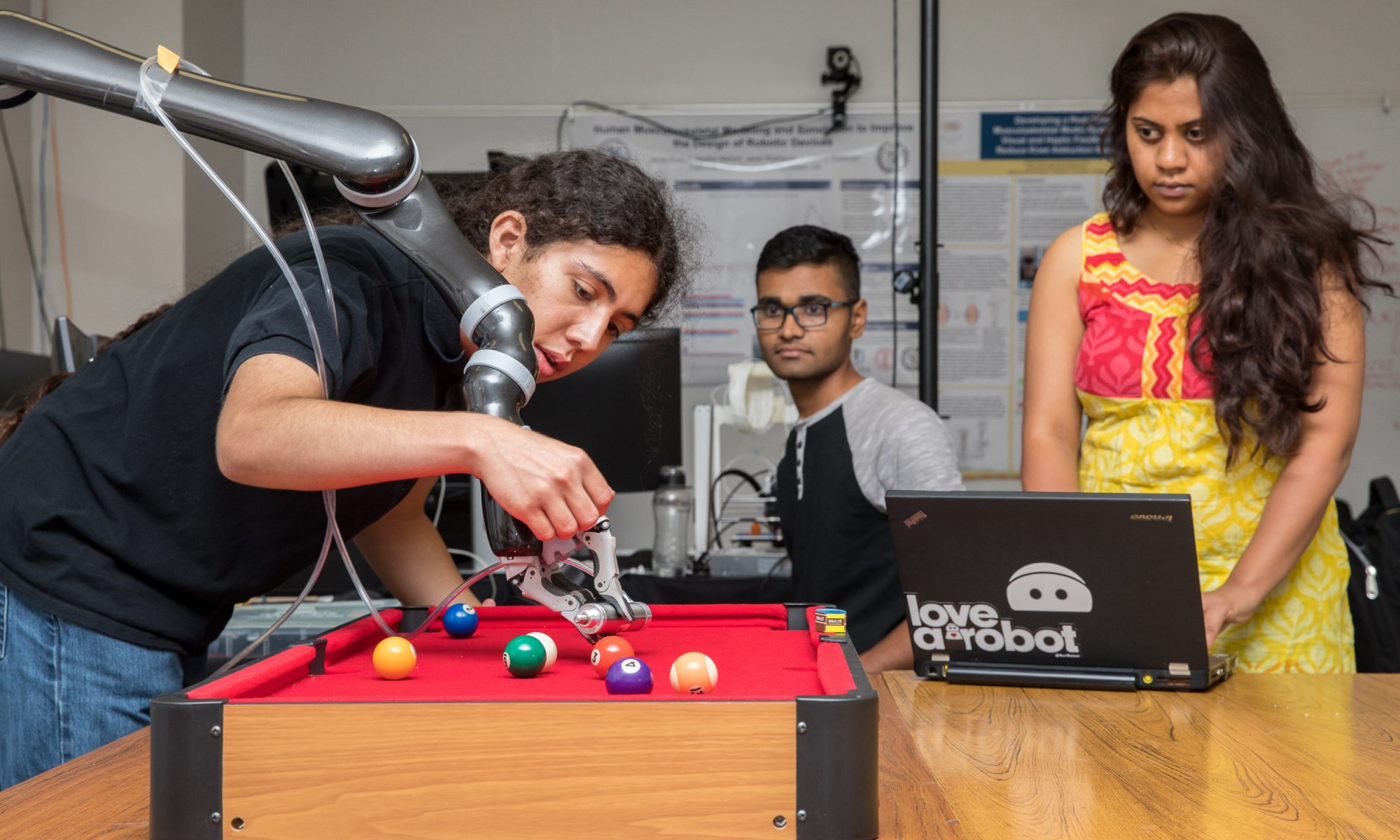Nearly 200 students and faculty turned out this week for a special screening of “Code: Debugging the Gender Gap,” a documentary that examines the reasons more women aren’t pursuing careers in computing.
The screening–sponsored by the Computer Engineering and Computer Science Department—was followed by a panel discussion with Wonder Women Tech Founder Lisa Mae Brunson and Director of Global Partnerships Simmone Park; WE Labs and Innovatory Managing Partner Lincoln Bauer; and three female CSULB computer science alumni; Bonnie Hoang, Eileen McCremens, and Siori Hojo.
“We got quite a bit of positive response from the students. There was a good amount of discussion,” said CECS Assistant Professor Birgit Penzenstadler, who heard about the documentary while attending the Grace Hopper Celebration in October and organized the screening and the panel.
“I think the movie did a really good job of creating awareness without pointing fingers,” said CECS Chair Burkhard Englert. The fact that students stayed to the end of the three-hour event was evidence they were engaged in the topic, he added.
The U.S. Department of Labor estimates that from 2010-2020 there will be nearly 1.4 million computing-related jobs openings available in the country. According to the National Center for Women and Information Technology, U.S. computing graduates can fill only 32 percent of those jobs with current college graduation rates.
Increasing the number of women in computing would expand the employment pool, enhance innovation, reflect the customer base, improve companies’ bottom lines, and promote equality. NCWIT also points out that computing is a good career for women because it is stable, has low unemployment rates, and many profitable companies. In addition, computing is growing faster than other STEM fields,
But fewer women are studying computer science now than in the mid-1980s, when the proportion of female computer science students peaked at about 40 percent. Within Computer Engineering, women comprised 11.9 percent of the 2013-14 graduates, up from 11.2 percent in 2012-13, according to the Computing Research Association. The number of women among 2013-14 bachelor’s graduates in Computer Science was 14.1 percent, similar to the 14.2 reported for 2012-13.
The reasons for this are complicated and perplexing. NCWIT and other groups, as well as universities and computer science professors, have been working to raise awareness of the issue and reverse the trend for decades.
But CODE sheds new light on the problem. The rise of the “brogrammer,” a hypermasculine stereotype that equates computing with male camaraderie, has discouraged some women from entering computing, according to the documentary, as has the idea of “hackers” with their accompanying images of poor personal hygiene and caffeine-drink-accompanied all-night coding marathons.
Suggesting that girls decide against computer science early on, the documentary proposes more encouragement for girls, better computer science education in high school, and a more inclusive culture, both at work and school.
The documentary featured interviews with female tech executives, including US Chief Technology Officer Megan Smith, Facebook Director of Engineering Jocelyn Goldfein, Ericsson VP Roz Ho, and former NetApp Senior Vice President of Engineering Helen Bradley. Other women working in tech such as Pinterest software engineer Tracy Chou, Yelp software engineer Jenn Wang, and Pixar Director of Photography Danielle Feinberg also shared their experiences with the documentary filmmakers.
“I think there are a lot of lessons we can take from this movie,” said Tracy Bradley Maples, College of Engineering Acting Associate Dean for Academic Programs, who suggests possible future screenings for high school teachers and guidance counselors. “Hopefully together we can make an impact.”


